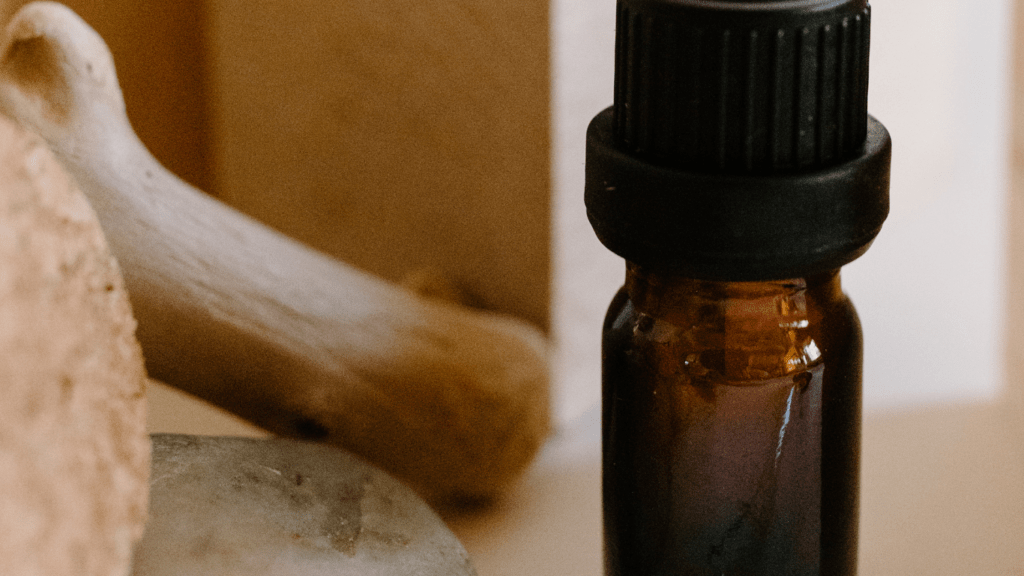Understanding Natural Remedies
Natural remedies leverage substances and practices derived from nature to manage health issues. In pet care, these remedies include herbs, essential oils, dietary changes, and physical treatments. Each offers unique benefits that target specific ailments.
Herbs
Herbs can be effective in treating various pet ailments. For instance, chamomile soothes skin irritation, while ginger alleviates nausea. Used properly, herbs offer a gentle alternative to synthetic medications.
Essential Oils
Essential oils, like lavender and peppermint, provide relief for anxiety and digestive issues. Dilute oils before applying them topically or diffusing them in your pet’s environment. Ensure oils are safe since some, like tea tree oil, can be toxic.
Dietary Changes
Diet significantly impacts a pet’s health. For example, adding pumpkin can ease constipation, while fish oil supports joint health. Consult a vet before making substantial dietary changes to ensure nutritional adequacy.
Physical Treatments
Physical treatments, such as acupuncture and massage, benefit pets by alleviating pain and enhancing mobility. These methods, when administered by trained professionals, offer a holistic approach to pet wellness.
Benefits of Using Natural Remedies for Pets
Using natural remedies for pets offers several advantages. These benefits make them a viable option for many pet owners seeking alternative healthcare solutions.
Safety and Minimal Side Effects
Natural remedies usually have minimal side effects. Unlike conventional medications, which often come with a long list of potential adverse reactions, herbs, essential oils, and dietary supplements are gentler on a pet’s system. For example, chamomile can soothe anxiety without the drowsiness that pharmaceuticals might cause. Natural treatments also reduce the risk of dependency, ensuring pets maintain their natural physiology.
Cost-effectiveness
Natural remedies are often cost-effective compared to traditional medications. Many herbal treatments, like ginger for nausea or pumpkin for digestive health, are inexpensive and readily available. Essential oils, while needing careful application, can last for months, reducing the frequency of purchases. This affordability can make a significant difference, especially for households with multiple pets.
Holistic Approach
- Natural remedies support a holistic approach to pet health.
- They treat the pet’s entire system rather than just addressing symptoms.
- Treatments like acupuncture and massage not only alleviate pain but also improve overall well-being.
- Dietary changes impact multiple aspects of health, from enhancing coat quality to boosting immune function.
- This comprehensive approach ensures that pets live balanced, healthy lives.
Common Pet Ailments and Their Natural Remedies
Pets face various common ailments, but natural remedies can often provide relief. These solutions are both cost-effective and safe when used correctly.
Skin Irritations and Allergies
For skin irritations and allergies, chamomile and calendula offer relief. Chamomile can reduce inflammation and itching. Calendula helps heal wounds and soothe irritated skin. A simple chamomile tea soak can calm itching. For calendula use, apply it as a topical ointment.
Digestive Issues
Ginger and pumpkin address digestive issues in pets. Ginger alleviates nausea. Pumpkin provides fiber to relieve constipation. Adding a small amount of grated ginger into their food can help with motion sickness. A spoonful of cooked pumpkin supports regular bowel movements.
Joint Pain and Arthritis
For joint pain and arthritis, turmeric and fish oil are beneficial. Turmeric has anti-inflammatory properties. Fish oil lubricates joints and enhances mobility. Mixing turmeric powder into your pet’s food reduces inflammation. Fish oil capsules added to their diet strengthen joint health.
Anxiety and Stress
Lavender and valerian root can help with anxiety and stress. Lavender has a calming effect. Valerian root reduces nervousness. Diffusing lavender essential oil in the pet’s space or applying diluted oil to their bedding can soothe them. Valerian root extract in their water or food decreases anxiety levels.
Using these natural remedies enables safe and effective management of common pet ailments.
Herbal Remedies for Pets
Herbal remedies play a significant role in managing common pet ailments. They offer natural, safe alternatives when used correctly, promoting overall well-being without harsh side effects.
Chamomile
Chamomile is a mild herb useful for skin irritations and digestive issues. This herb has anti-inflammatory and calming properties, making it effective for treating anxiety in pets. Chamomile tea, when cooled, can soothe itchy or inflamed skin. Additionally, chamomile-infused water aids upset stomachs if added to drinking water.
Echinacea
Echinacea boosts the immune system and helps fight infections. This herb is great for treating upper respiratory issues and enhancing overall immunity. Echinacea tinctures or capsules mixed into food can improve pets’ resistance to illnesses, particularly in high-risk environments or during seasonal changes.
Aloe Vera
Aloe vera alleviates skin irritations and promotes healing. Its gel has anti-inflammatory and antibacterial properties, making it ideal for burns, cuts, and other skin issues. Apply the aloe vera gel directly to the affected area to provide relief. Avoid oral consumption, as it can be toxic if ingested by pets.
Essential Oils for Pet Health

Essential oils can be a natural way to improve pet health. When used correctly, oils like:
- lavender
- peppermint
- frankincense
can benefit pets dealing with various ailments.
Lavender Oil
Lavender oil provides several benefits for pets. It helps reduce anxiety and promotes relaxation. Pets experiencing stress from travel or separation can find comfort from lavender oil. It also soothes minor skin irritations and serves as a natural insect repellent. Only apply diluted lavender oil to pets’ fur, avoiding their eyes and ears.
Peppermint Oil
Peppermint oil aids digestion and relieves respiratory issues. For pets with upset stomachs, diluted peppermint oil can provide relief. It also helps clear respiratory congestion, making breathing easier. Some pets might react negatively to peppermint, so introduce the oil gradually and monitor your pet’s response.
Frankincense Oil
Frankincense oil boasts anti-inflammatory and healing properties. It helps reduce symptoms of arthritis and other inflammatory conditions. Pets with wounds or skin conditions benefit from its healing effects. Always ensure proper dilution before applying frankincense oil to your pet’s skin.
Precautions and Considerations
Understanding potential risks and taking necessary precautions is vital when using natural remedies for pets. While many herbs and essential oils offer benefits, misuse or overuse can lead to adverse effects.
Consult A Veterinarian
Engaging with a veterinarian ensures that remedies are safe and appropriate for your pet. Veterinarians can provide specific guidance based on your pet’s medical history, current medications, and overall health condition.
Proper Dosage
Accurate dosing prevents side effects. Consult resources like veterinary guidelines or credible pet health sources to determine appropriate amounts. For instance, chamomile is beneficial, but excessive amounts can cause gastrointestinal issues.
Monitor For Allergic Reactions
Start with small amounts when introducing a new remedy. Watch for signs of allergies, like itching, swelling, or respiratory distress. Discontinue use immediately if any of these signs occur.
Quality Of Products
Choosing high-quality, organic products ensures purity and effectiveness. Products without additives or preservatives reduce the risk of harmful reactions. For example, pure lavender oil should not contain synthetic fragrances or other chemicals.
Compatibility With Existing Conditions
Certain remedies may interact with existing conditions or medications. For instance, ginger is helpful for nausea but may not be suitable for pets with bleeding disorders due to its blood-thinning properties.
Proper Storage
Store remedies in a cool, dark place. Exposure to light and heat can degrade the potency of herbs and oils. This ensures the remedy maintains its effectiveness over time.
Avoid Toxic Ingredients
Some natural ingredients are toxic to pets. For instance, tea tree oil, while beneficial for humans, is toxic to pets. Always research or consult a veterinarian before introducing a new remedy.
Individual Pet Needs
Each pet is unique. What works for one may not work for another. Observe how your pet responds and adjust remedies accordingly to tailor to their specific needs.




